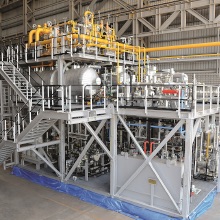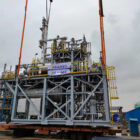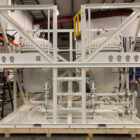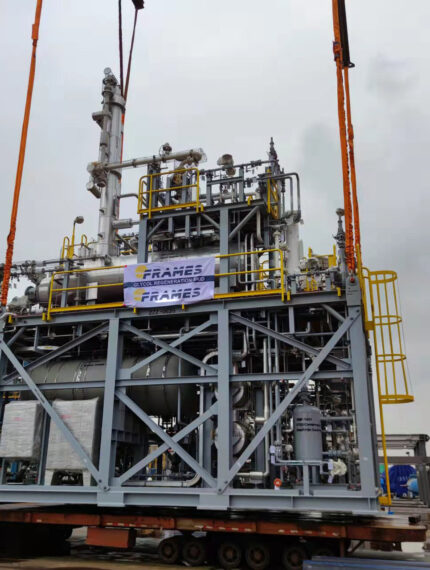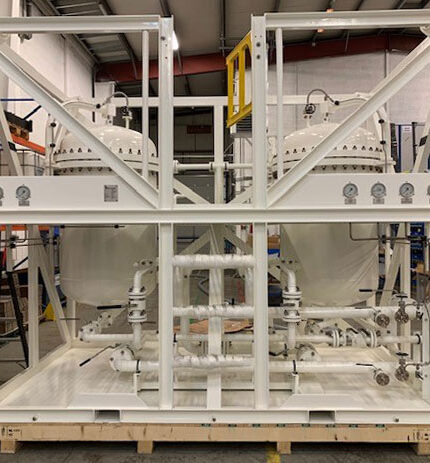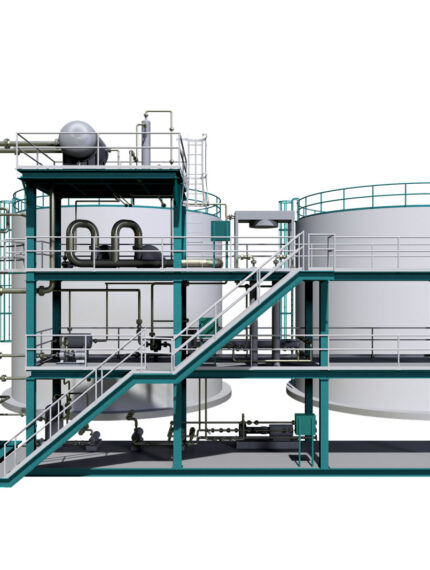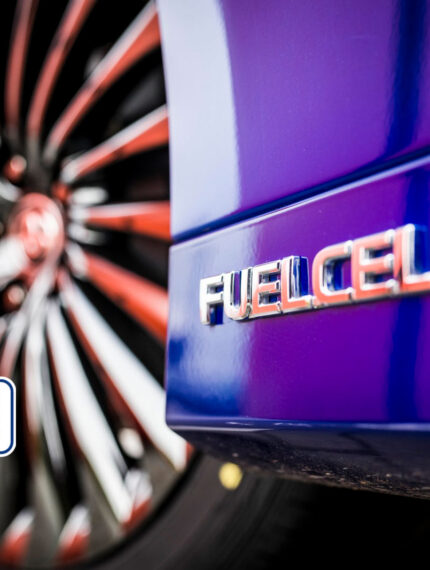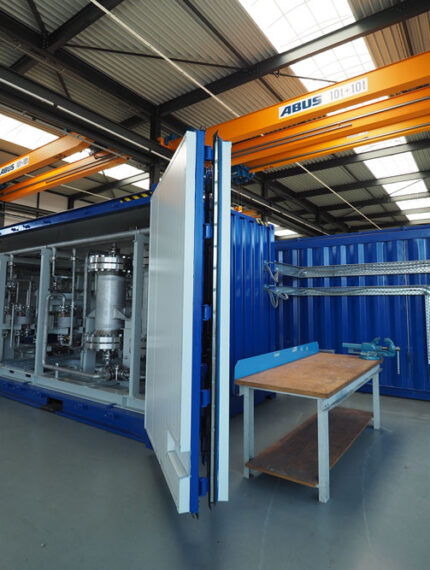Frames, together with their local partners has successfully completed the installation of a triethylene glycol (TEG) regeneration system for a Nigerian offshore gas gathering and compression platform. Part of a debottlenecking program, the expanded gas dehydration capacity will enable increased production from the offshore field.
Frames has designed and constructed the glycol-based gas dehydration unit for the offshore platform as part of an expansion of the platform’s existing dehydration system. The glycol-based gas dehydration system uses liquid desiccant technology to remove water from natural gas or carbon dioxide streams, thus preventing corrosion problems in downstream processes and equipment.
The platform’s previous glycol regeneration system has been replaced to allow increased natural gas handling capacity. Replacing the glycol regeneration package with a larger capacity package meant Frames had to produce a customised TEG unit geometry that was compact enough to be accommodated in the space available.
The Frames TEG package also included a lift gas contactor and gas/glycol heat exchangers. Frames has renewed the PLC based unit control and heater power control system, as well as supplying a gas dew point analyser to monitor the unit’s performance.
“The TEG project demonstrates the breadth of design and implementation experience that Frames brings to gas treatment projects,” says Mr. Antoine Willems, Project Director, Frames. “Working together with our client and local partners ensured a smooth, on-time, project delivery.”

